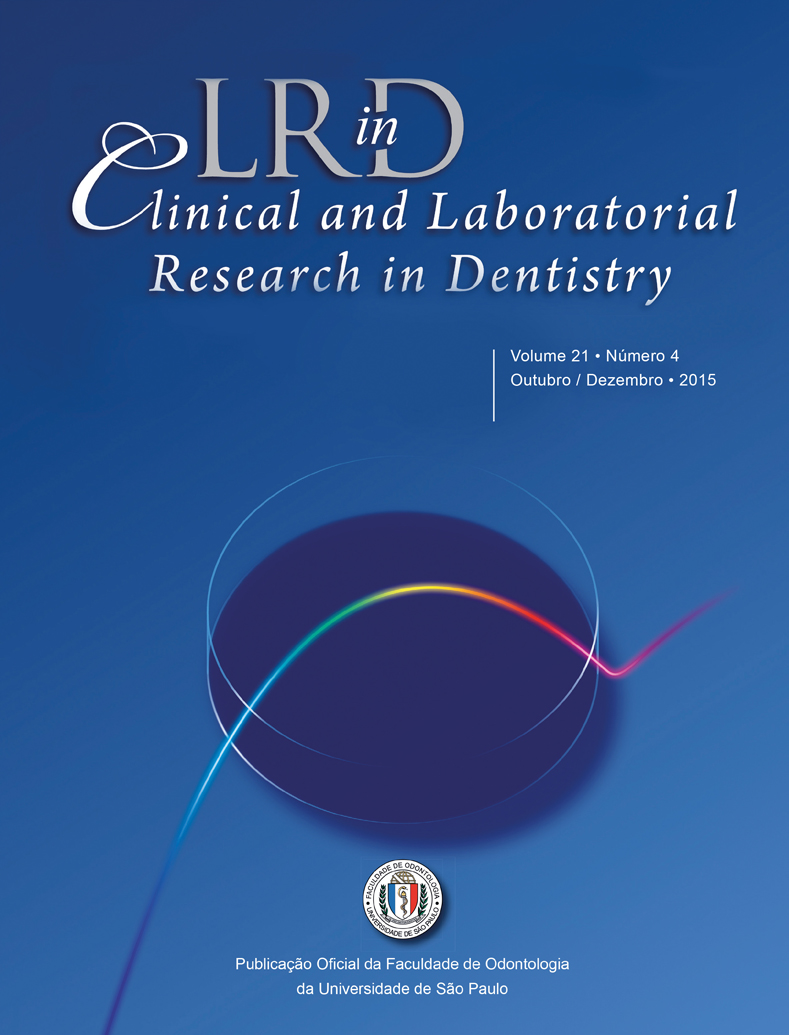Ameloblastic fibroma: a case report
DOI:
https://doi.org/10.11606/issn.2357-8041.clrd.2015.129516Palavras-chave:
Tumores Odontogênicos, Patologia Oral, FibromaResumo
Ameloblastic fibroma is a rare benign odontogenic tumor in which both the epithelial and ectomesenchymal components are neoplastic. A 24-year-old male patient was referred to the Stomatology Department presenting with difficulty to chew and swelling in the right posterior region of the mandible. The panoramic radiograph showed a well-circumscribed, unilocular radiolucent lesion with partially radiopaque borders involving first and second unerupted molars. Computed tomography imaging presented a hypodense image with well‑delimited isodense content, bulging cortical bones and absence of rupture. The patient underwent an incisional biopsy. Microscopically, the lesion was composed of many mesenchymal tissue cells in strand form, arranged in cords, islands and nests of odontogenic epithelium; the diagnostic was ameloblastic fibroma. The patient was referred to the hospital for enucleation and curettage of the lesion and extraction of the associated teeth. After 8 months of follow-up, no recurrence was observed. This case emphasizes the importance of differential diagnosis, anatomopathological exam, and both clinical and imaging follow-up, since tumors of this type can recur and progress to malignancy.
Downloads
Downloads
Publicado
Edição
Seção
Licença
Solicita-se aos autores enviar, junto com a carta aos Editores, um termo de responsabilidade. Dessa forma, os trabalhos submetidos à apreciação para publicação deverão ser acompanhados de documento de transferência de direitos autorais, contendo a assinatura de cada um dos autores, cujo modelo está a seguir apresentado:
Eu/Nós, _________________________, autor(es) do trabalho intitulado _______________, submetido agora à apreciação da Clinical and Laboratorial Research in Dentistry, concordo(amos) que os autores retém o direitos autorais e garantem a revista o direito da primeira publicação, sendo o trabalho simultaneamente autorizado sob a Creative Commons Attribution License, que permite a outros compartilhar o artigo com reconhecimento da autoria do trabalho e publicação inicial nesta Revista. Aos autores será possibilitada a distribuição em separado da versão publicada do artigo, arranjos contratuais adicionais para a distribuição não-exclusiva da versão publicada (por exemplo, publicá-la em um repositório institucional ou publicação em livro), com o reconhecimento de sua publicação inicial nesta revista. Aos autores será permitido e encorajado publicar seu trabalho on-line (por exemplo, em repositórios institucionais ou em seu site) antes e durante o processo de envio, pois pode levar a intercâmbios produtivos, bem como a maior citação do trabalho publicado. (Veja The Effect of Open Access).
Data: ____/____/____Assinatura(s): _______________


